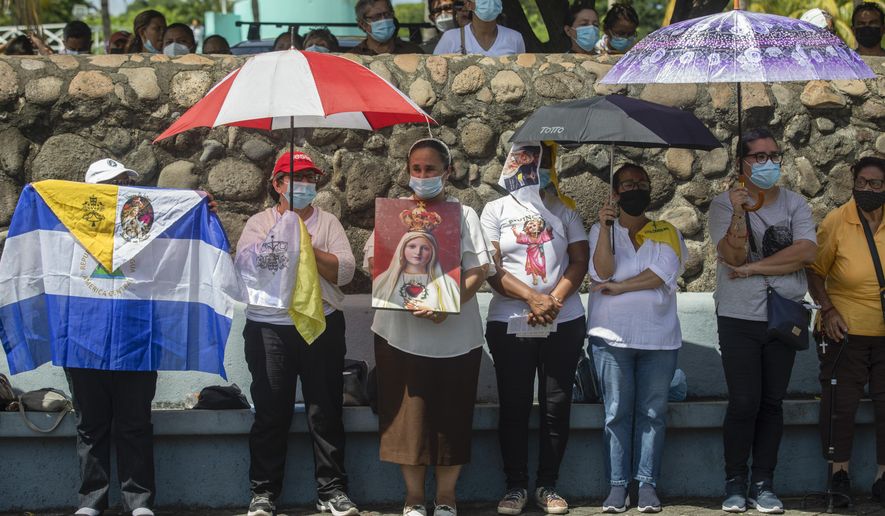MEXICO CITY (AP) — Hundreds of Nicaraguans attended a Mass under a heavy police presence Saturday after the government prohibited a religious procession in the capital amid tensions with the Roman Catholic Church.
Church leaders announced a day earlier that the National Police had banned the planned procession for Our Lady of Fatima for reasons of “internal security.” Instead, the church called the faithful to come peacefully to the cathedral.
On Saturday, Cardinal Leopoldo Brenes said they gathered “with a lot of happiness, but also with a lot of sadness” due to “the situation we have lived in our parishes.”
“Forgive them Lord, because they know not what they do,” Brenes said.
Earlier this month, the government of President Daniel Ortega closed seven radio stations owned by the church and announced an investigation of Bishop Rolando Álvarez, who has been confined to the church’s compound in Matagalpa by police for nearly two weeks.
The government acuses Álvarez, a vocal government critic, of promoting hate and inciting violence.
Before confining Álvarez, police had encircled a priest in Sebaco, also part of the Matagalpa diocese, for several days before eventually allowing him to leave.
On Saturday, a representative from the Matagalpa diocese presented Brenes with an image of the Lady of Fatima.
On Friday, the Vatican spoke out publicly for the first time about the recent moves against the church in Nicaragua.
The Vatican’s permanent observer to the Organization of American States expressed concern during a special session of the body’s permanent council. Monsignor Juan Antonio Cruz called for “finding paths of understanding based on reciprocal respect and trust, looking above all for the common good and peace.”
During the session, 27 countries approved a resolution condemning “the forced closure of nongovernmental organizations and the harrassment and arbitrary restrictions placed on religious organizations” in Nicaragua. There was one vote against and four abstentions.
Police have not allowed large public gatherings, except those sponsored by the government or the ruling Sandinista National Liberation Front party, since September 2018. Earlier that year, in April, huge street protests became a call for Ortega to step down.
Ortega has maintained that it was a coup attempt carried out with foreign backing and the support of the church. Since then his government has moved against voices of dissent, including political opposition leaders and more than 1,000 nongovernmental organizations.




Please read our comment policy before commenting.